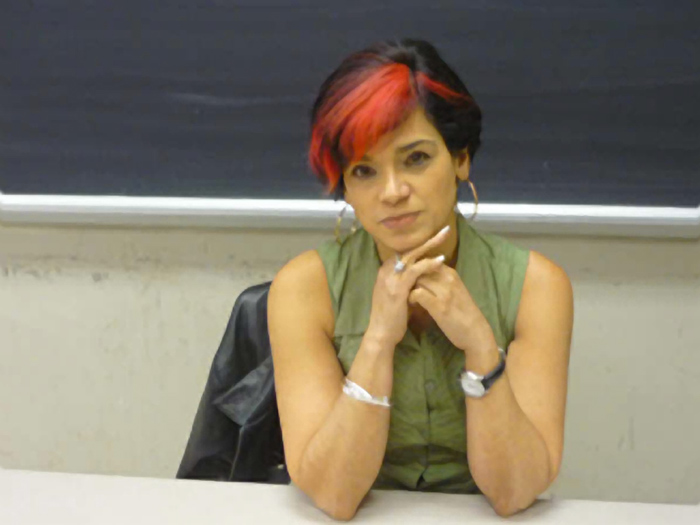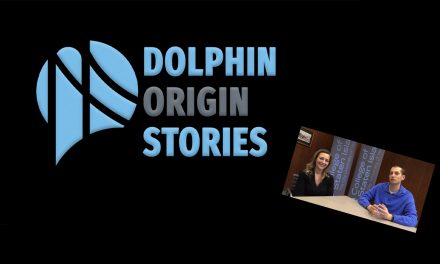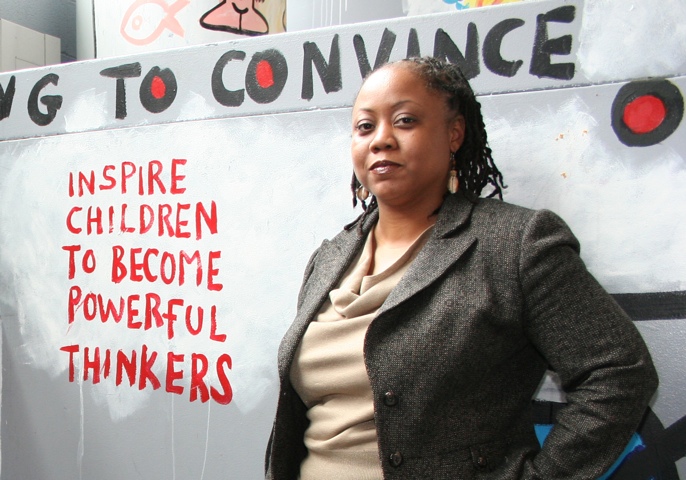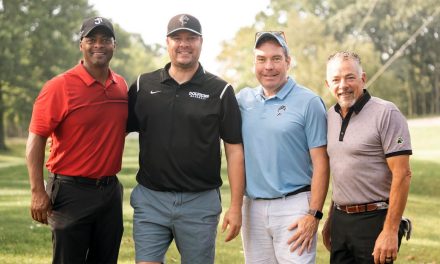CSI sophomore Marybeth Melendez has been very fortunate, lately. She has recently won the 2009 Michael D. Solomon Scholarship Award, and the 2009 Women’s Opportunity Award and $5,000 North Atlantic Regional Award from the SI Chapter of Soroptimist International. If that weren’t enough, she also received a scholarship from the American Association for University Women for outstanding leadership and academic success.
This news is even more remarkable when one considers that Melendez, a single mother of three with a double major in Clinical Psychology and Sociology, is visually impaired. “When I came here to CSI,” Melendez recalls, “I had my goals set, but I wasn’t entirely sure how I was going to meet the challenges. You have to stop and think, how does a blind person become a student in the classroom with the other students?
“I remember walking into a classroom,” Melendez continues, “and as the professor was writing on the blackboard, it was hieroglyphics to me—all I heard were the sounds and the smell of chalk, [and there was] the business of writing and the textbooks I couldn’t read, and for one moment, my heart stopped. Then I realized in this school there is the Office of Disability Services. That was one of the definitive factors in my success here. That office had all the tools that I needed to become a productive, visually impaired student. They had the technology, the software, the equipment that I could take in and out of the classroom, and that made the difference for me in excelling because now I had everything I needed plus my own hard work. The combination was explosive.”
It was explosive, indeed. In her year and a half at CSI, Melendez has flourished as a Verrazano School student, and she has a long list of other accomplishments, including acting as the CSI representative for the CUNY Coalition for Students with Disabilities, and being a CSI Emerging Leader; President of the OUI Club (for students with disabilities); and a member of the SEEK, Psychology, and American Sign Language clubs, and the Institute for Basic Research Institutional Animal Care and Use Committee. She is even scheduled to sing the National Anthem at a Staten Island Yankees game this month.
As for her awards, Melendez reports that she was nominated for the honors. Regarding the Solomon Award, she says, “The fact that they had nominated me, that this isn’t something that I had solicited, spoke volumes to me. I was touched. It’s a recognition that has to do with leadership qualities, academic excellence. Two people were chosen; I was one of the two.”
Discussing the Soroptimist honors, Melendez states, “I was told that this particular organization, which has been around for at least 70 years, and in some locations, 80, reaches out to women who may have financial need but display all of the characteristics of someone who will follow through with their academic endeavors and will make a difference in society. They did their search through an essay, and of course you have to have nominations and a letter of recommendation. So, I was able to submit everything in a timely fashion and I was called and told vocally that my essay had won, that they were impressed with my life and my story—what I was doing academically and how I had achieved that—and I was very honored. Then, my essay was submitted into the national division, because, apparently there are three legs to this contest. I was called and I also won the North Atlantic Region part also. They shipped me off to Albany where I spent the weekend…and I got to meet some women who were in some strong corporate-sector roles from all over the country.”
In light of her recent shower of recognition, Melendez says, “I’m grateful. I worked hard for this. I have determination and perseverance. I know where I’ve been, I know where I am now, and I know where I want to go. I am so grateful that every time I needed assistance there was someone there to shed a little light and give me a hand to where I had to go. I have a lot of passion for the College of Staten Island [and feel] that I’ve found another home here.”
She also waxes philosophically on what she has overcome to achieve so much. “I have a disability. It’s my calling card; it’s who I am. And if I can do this now in my life, can you imagine what [others] can do?”



![[gallery] Third Annual SIBCRI Walkathon draws more than 300 Walker](https://csitoday.com/wp-content/uploads/2013/10/SIBCRI-2013.jpg)













